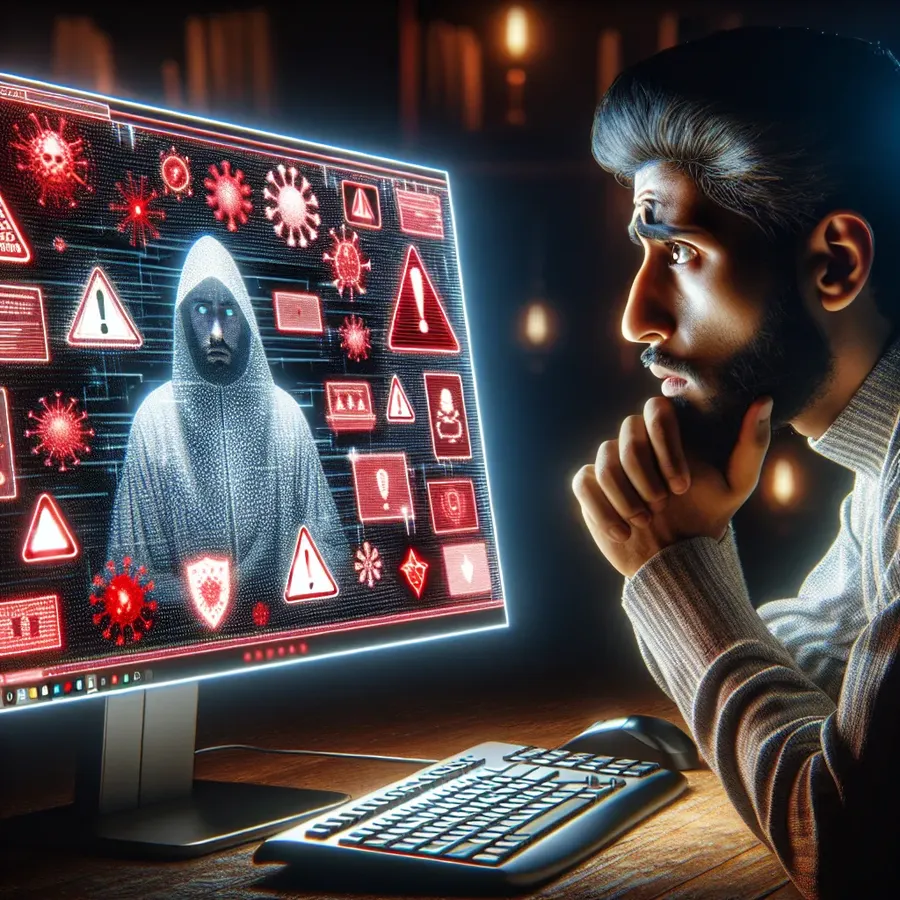How to Know If Your Computer Is Infected
Wondering, does my computer have a virus? Discover the signs and solutions to protect your device from malware threats.

In the bustling world of technology, the fear of computer viruses lurks like an unseen predator. Does my computer have a virus? It’s a question we often brush aside until strange things start happening on our beloved machines. Maybe your computer’s performance has taken a nosedive, or perhaps you’re bombarded with annoying pop-ups. Let’s dive deeper into the murky waters of computer viruses and uncover how to spot and tackle these digital threats.
Signs Your Computer May Be Infected
Performance Slows to a Crawl
If your computer suddenly feels like it’s running through molasses, it might not be just a fluke. Viruses often chew up system resources, leading to slow performance. Keep an eye out for longer boot times and sluggish app launches.
Pop-ups Galore
Are you seeing pop-ups even when your browser is closed? That’s as suspicious as a cat in a fish market. These pop-ups might be luring you into downloading more malware under the guise of virus alerts or software updates.
Unfamiliar Programs
Ever found an application you don’t remember installing? Computer viruses can quietly introduce new programs without your consent. These could be tools for hackers to exploit your system further.
Email and Social Media Hijinks
If your friends start receiving odd emails from you, or your social media accounts post without your knowledge, a virus might be at play. This type of malware can spread by using your accounts to target others.
Checking for Viruses Without Software
While antivirus software is a handy tool, sometimes you might want to check for viruses manually. Here’s a simple guide:
- Safe Mode First: Restart your computer and enter Safe Mode. This limits the operations to essential functions and can prevent malware from loading.
- Task Manager/Activity Monitor: Open these utilities to identify any programs hogging resources that shouldn’t be there.
- Review Installed Programs: Go through your installed programs list and uninstall anything unfamiliar or suspicious.
Forest VPN: A Shield Against Online Threats
In our interconnected world, Forest VPN emerges as a knight in shinning armor. It’s not just about privacy; it’s about adding an extra layer of security. With Forest VPN, your internet traffic is encrypted, making it harder for viruses to latch onto your data as you browse.
Benefits of Using Forest VPN:
- Privacy and Security: Encrypts your data, keeping your online activities hidden from prying eyes.
- Access to Global Content: Connect to servers worldwide and enjoy content without geographical restrictions.
- Energy Efficient: Designed to consume less battery, Forest VPN helps reduce your carbon footprint.
Real Stories, Real Impact
Testimonial 1: “Using Forest VPN gave me peace of mind. My laptop was always getting those weird ads, but the VPN stopped them right in their tracks. Now I can browse safely!” – Jamie, a satisfied user.
Testimonial 2: “I travel a lot, and Forest VPN is my travel buddy. It keeps my connections secure, especially when I’m on public Wi-Fi. Plus, I love how it uses less battery!” – Sam, a digital nomad.
How to Stay Vigilant
- Keep Your System Updated: Ensure your operating system and all software are up-to-date with the latest security patches.
- Regular Backups: Always have a backup of your important data. In case of an infection, you can restore from a clean backup.
- Educate Yourself: Stay informed about the latest threats and how to avoid them.
A Closing Thought
In this wild west of cyber threats, asking, “Does my computer have a virus?” is just the beginning. With vigilance, the right tools, and a trusty ally like Forest VPN, we can navigate these digital jungles safely. Remember, the best offense is a good defense, and with Forest VPN, you’re always a step ahead.
Does My Computer Have a Virus?
If you’re wondering does my computer have a virus, look for these common signs:
- Slow performance: Programs take longer to load.
- Frequent pop-ups: Unexpected ads or alerts.
- Unknown applications: New programs that you didn’t install.
To protect your system, regularly run antivirus scans and keep your software updated. Additionally, using Forest VPN can enhance your security by encrypting your internet traffic, making it harder for malicious software to infiltrate your device.
Don’t wait until it’s too late! Safeguard your digital life with Forest VPN today: Get Forest VPN.
FAQs About Detecting and Resolving Computer Viruses
What are the common signs that my computer has a virus?
Common signs include slow performance, unexpected pop-ups, unfamiliar programs, and emails being sent from your accounts without your knowledge. If your computer is exhibiting these symptoms, it’s time to take action.
How can I check for viruses without using software?
You can check for viruses manually by restarting your computer in Safe Mode, using Task Manager or Activity Monitor to identify suspicious applications, and reviewing your installed programs for anything unfamiliar.
Why is it important to have a VPN like Forest VPN for my online security?
A VPN, such as Forest VPN, encrypts your internet traffic, which protects your data from potential threats while browsing. It also helps prevent malware from latching onto your information, especially when using public Wi-Fi.
What should I do if I suspect my computer has a virus?
Act quickly by running a full-system scan with antivirus software, restoring your computer to an earlier backup, deleting temporary files, and booting into Safe Mode if necessary. If all else fails, consider reinstalling your operating system or seeking professional help.
How can I prevent my computer from getting viruses in the future?
To prevent future infections, keep your software updated, avoid downloading files from untrusted sources, install reputable antivirus software, and practice good cyber hygiene by recognizing phishing attempts and using strong passwords.
